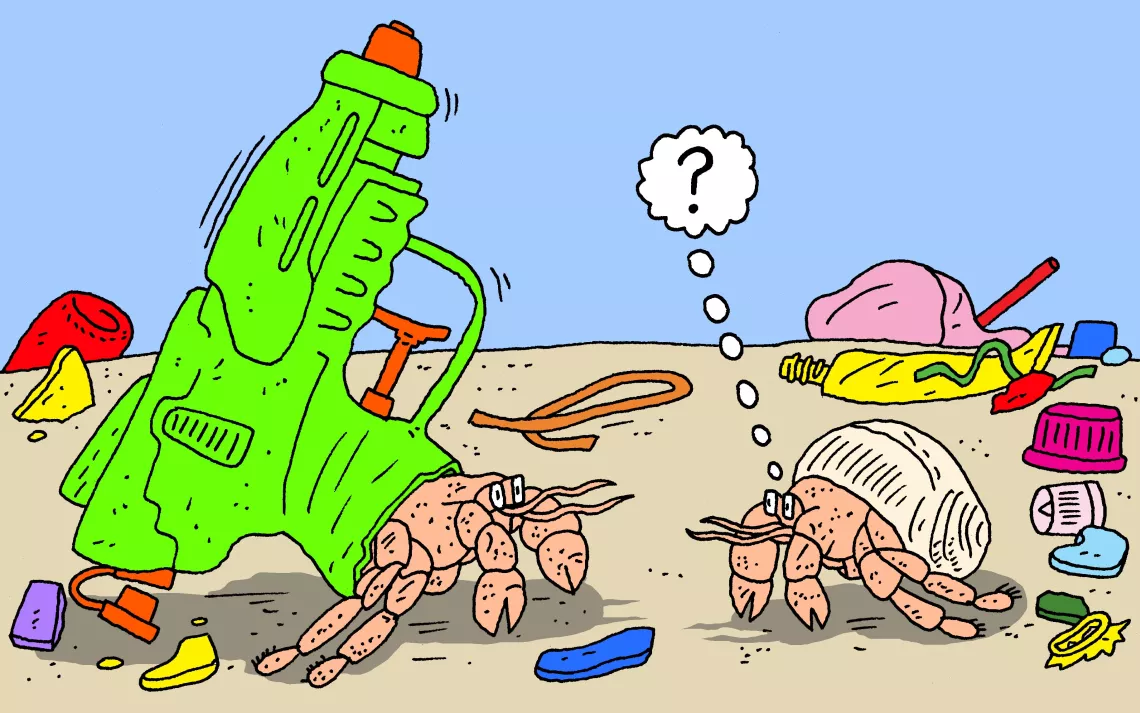Environmental News ICYMI
A weekly roundup for busy people

ILLUSTRATION BY PETER ARKLE
The beaches of remote Henderson Island in the South Pacific are covered with 17.6 tons of garbage, much of it plastic.
In Kentucky, 17-year cicadas emerge four years early because of climate change.
Officials in Oregon’s Sherman County are trying to force Azure Farms to spray herbicide on its 2,000 acres to control weeds. The organic farm’s religious owners cite God’s commandment in Numbers 35:34: “Defile not therefore the land which ye shall inhabit, wherein I dwell.”
A Utah group called People for the Ethical Treatment of Property Owners wants the 10th Circuit Court of Appeals to let them kill prairie dogs on private property.
Canadian timber giant Resolute Forest Products is suing Greenpeace under RICO, a law intended to target organized crime, for $220 million in a dispute over the company’s logging practices in Canada’s boreal forest.
Fracking booms are correlated with baby booms but not with more marriages.
Thirty-eight percent of cans from four major national supermarkets still contain the toxic chemical BPA.
Because of a decline in sea ice, polar bears’ diets are shifting from seals to bird eggs.
The largest pitch pine in Washington State, formally known as Pinus rigida 212-45-C, dies due to complications of climate change.
President Trump’s nominee to the U.S. Department of Agriculture’s top science position is not a scientist.
 The Magazine of The Sierra Club
The Magazine of The Sierra Club